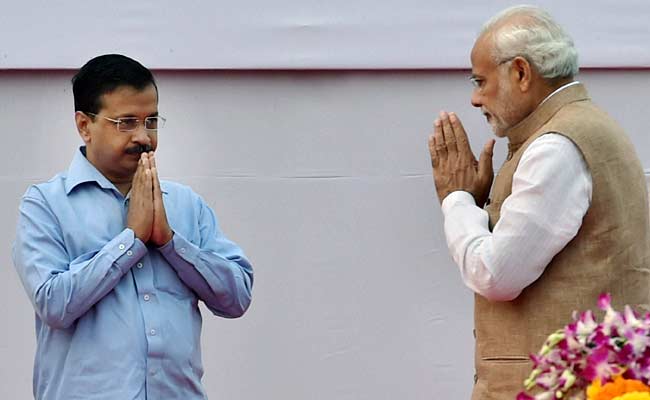New Delhi:
Before the Centre’s promulgation of an ordinance on Friday to create the National Capital Civil Services Authority to decide on postings and transfers of bureaucrats and make the Lt Governor the final arbiter over such matters, the Centre studied multiple global case studies, aspects such as the nation’s security and the pivotal position that Delhi holds to drive home investments, apart from looking into complaints by bureaucrats working in Delhi who were often caught in the Delhi CM-LG tussle, senior officials in the government told NDTV.
These are five most important factors that drove the Centre’s decision, according to sources:
1. How capital cities are governed across the world
Official sources said they have looked into many examples from all over the world, particularly in capital cities such as Washington D.C, Canberra, Ottawa, Berlin and even Paris that either are governed by the federal government, have a mayor-led administration and no elected government, or follow a shared model of governance. Government officials stated that according to their assessment, in many countries in the West, the federal government has jurisdiction over key aspects of the city’s governance, including land use planning, major infrastructure development, and diplomatic relations. “We have looked at capital cities around the world, and there is much to learn from them, on how capital cities are aligned with the national vision. This is important to ensure national priorities take precedence over local politics,” a top official said.
The Centre’s ordinance on postings comes barely a week after the Delhi government was given executive power in services matters, including transfer and posting of officers by the Supreme Court. The ordinance however stated that the apex court passed the verdict in the absence of any specific parliamentary legislation dealing with the subject of services. The Central Government has also moved the court against its judgement.
2. Security and Diplomatic reasons
The centre believes that dual authority and responsibility of the national capital will endanger security, affect coordination that administration of the country requires, and this was made clear when Delhi was declared the National Capital Territory (NCT) in1991. “It is the Centre that is responsible for national security and defence, which is why having control over the administration of Delhi ensures effective coordination and implementation of security measures in the capital city,” the official quoted above said.
Having central control over the administration of Delhi will help the Centre engage better with embassies of foreign countries and other diplomatic entities, and ensure that “national interests are prioritized over local considerations,” the Centre’s justification said. Officials said that since the centre is known to have a broader perspective on governance and policy-making, it can push comprehensive planning and decision-making for the capital that hosts a large number of diplomatic missions. “The central government can use its influence and diplomatic relations at the international level to attract foreign investment that can benefit the nation,” an official said.
3. Feedback from bureaucrats, complaints too
While the ordinance raises questions over the manner in which it addresses the key points iterated in the Supreme Court ruling, the Centre has its reasons for making this move, and has considered many factors, a top official said. “We took extensive feedback from bureaucrats, specifically those working in Delhi. Many have communicated to us how they are unable to work efficiently and often accused of siding with the Centre,” another official said.
4. Dealing with health emergencies better
Officials also said since it is the central government that has the power to allocate and deploy resources efficiently in Delhi, a centralised approach will work better for the city and its residents during natural disasters or public health crises. That the Centre is also better equipped to handle transportation, environmental concerns, and cross-border matters that impact Delhi’s development and well-being was also among reasons behind the move, the official quoted above said.
5. Politics over bureaucracy and its impact on policy decisions
The ordinance had to be brought in because in the recent years there have been multiple instances of the elected Delhi government at loggerheads with the Central government, to stall “potential conflicts or discrepancies that could arise from differing regional rules, regulations and legislations,” according to the Centre. There have been various run-ins between the bureaucracy and the Arvind Kejriwal-led AAP government in Delhi, leading to several impasse. Recently, Ashish More, senior bureaucrat had also written to the Centre complaining of being harassed, a claim the AAP has dismissed. This is just one of the many examples of bureaucrats taking on the Kejriwal government, after 2018 when they had protested against the assault of then chief secretary Anshu Prakash by party MLAs.







